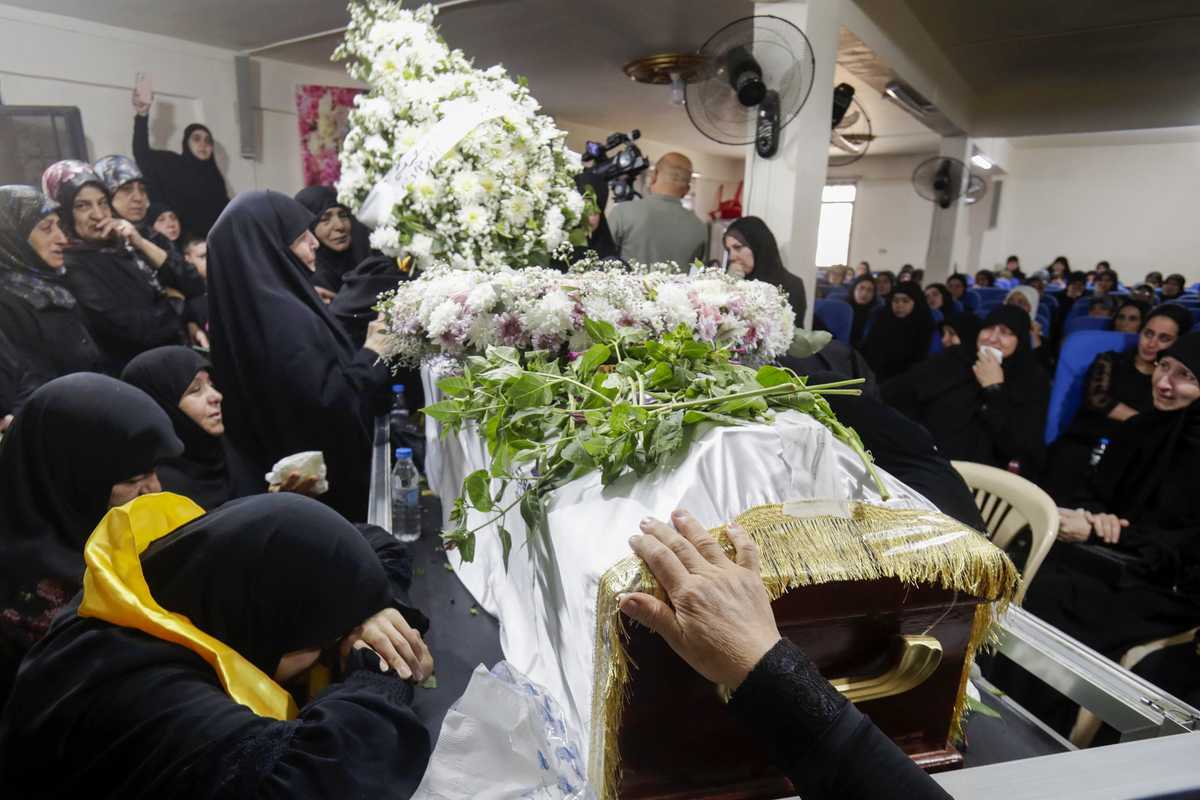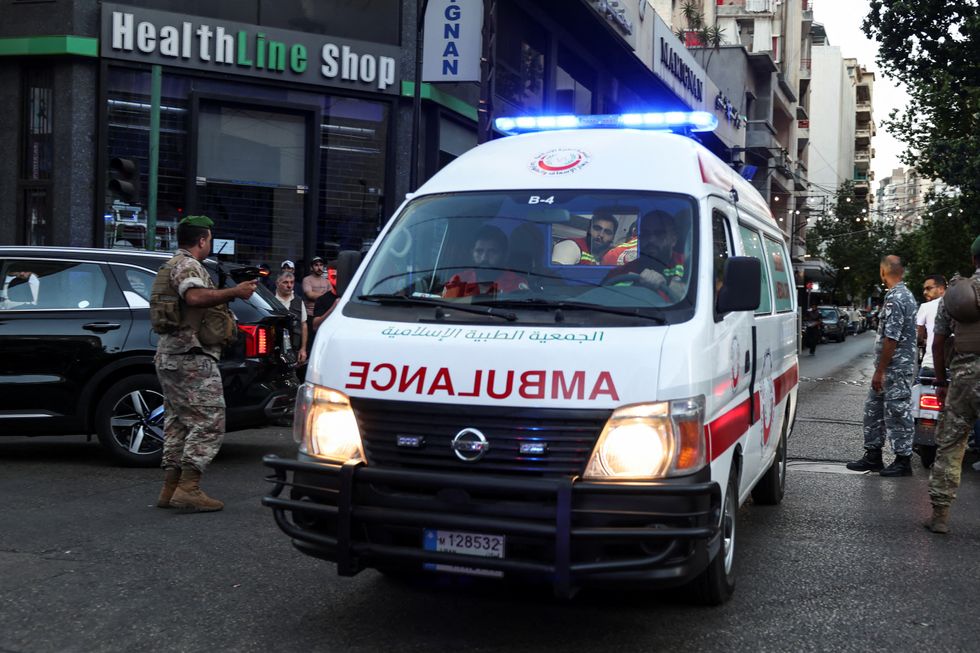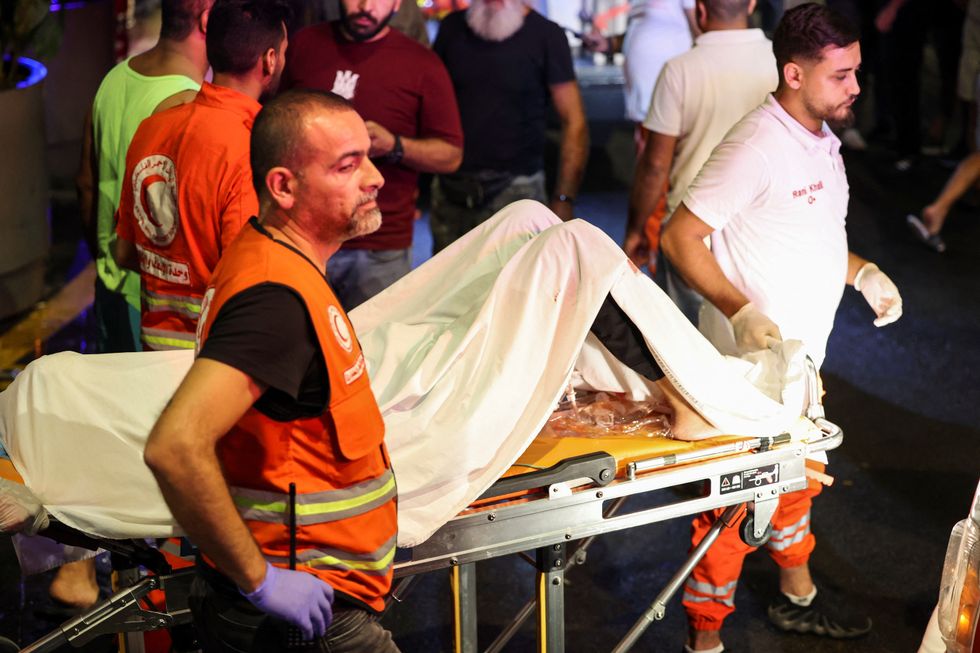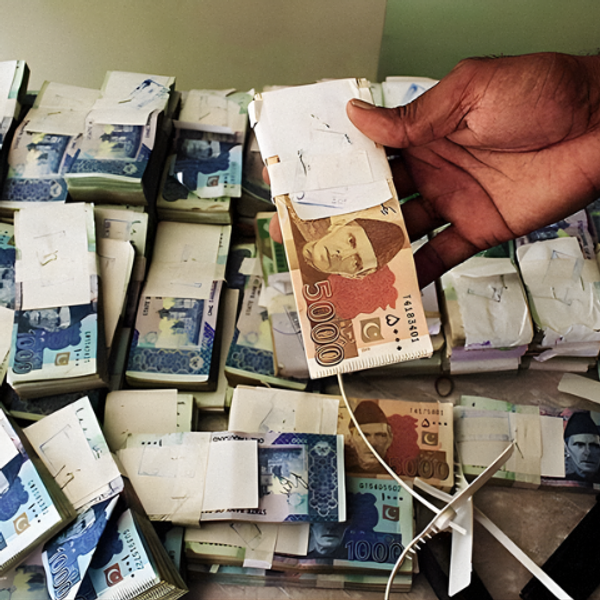Reuters
News Agency Partner
Reuters is a leading source of news and information, delivering fact-based reporting and expert analysis on international events and trends.
AFP
News Agency Partner
AFP is a renowned international news agency, delivering comprehensive and reliable reporting on global events, trends, and issues.

Relatives mourn Fatima Abdallah, a 10-year-old girl killed after hundreds of paging devices exploded in a deadly wave across Lebanon.
AFP
3,000 pagers exploded when coded message were sent to them.
Lebanese security source said the pagers were from Taiwan-based Gold Apollo.
US denies knowledge or involvement in blasts
Exploding pagers claimed the lives of 12 people in Lebanon, including two children, the country's health minister said on Wednesday, updating the toll a day after the blasts.
Hundreds of the wireless devices exploded simultaneously across Lebanon on Tuesday.
On Wednesday, Lebanese Health Minister Firass Abiad said 12 people were killed and between 2,750 and 2,800 others were wounded, revising the toll up from nine dead.
"After checking with all the hospitals", the toll was revised to "12 dead including two children", Abiad told a news conference.
The dead included a girl and a boy as well as four health workers from private hospitals in Beirut's southern suburbs who had pagers, he said.
Abiad said that "the attack was very big" with about 2,800 wounded people pouring into Lebanese hospitals "within half an hour".
Here's what we know so far:
When and where did the blasts take place?
The detonations started around 3:30 p.m. (1230 GMT) in the southern suburbs of Beirut known as Dahiyeh and the eastern Bekaa valley - strongholds of Hezbollah.
They lasted around an hour, with Reuters witnesses and residents of Dahiyeh saying they could still hear explosions at 4:30 p.m. (1730 GMT).
According to security sources and footage reviewed by Reuters, some of the detonations took place after the pagers rang, causing the fighters to put their hands on them or bring them up to their faces to check the screens.
How big were the explosions?
The blasts were relatively contained, according to footage reviewed by Reuters. In two separate clips from closed-circuit video of supermarkets, the blasts appeared only to wound the person wearing the pager or closest to it.
Video from hospitals shared on social media appeared to show individuals with injuries to their faces, missing fingers and gaping wounds at the hip where the pager was likely worn.The blasts did not appear to cause major damage to buildings or start any fires.
What kind of pagers were used?
Israel's Mossad spy agency planted explosives inside 5,000 pagers imported by Lebanese group Hezbollah months before Tuesday's detonations, a senior Lebanese security source and another source told Reuters.
The operation was an unprecedented Hezbollah security breach that saw thousands of pagers detonate across Lebanon, killing nine people and wounding nearly 3,000 others, including the group's fighters and Iran's envoy to Beirut.
The Lebanese security source said the pagers were from Taiwan-based Gold Apollo, but the company said in a statement it did not manufacture the devices. It said they were made by a company called BAC which has a license to use its brand, but gave no more details.

What caused the pagers to explode?
The senior Lebanese security source said the group had ordered 5,000 beepers from Gold Apollo, which several sources say were brought into the country earlier this year.
The source said 3,000 of the pagers exploded when a coded message was sent to them, simultaneously activating the explosives.
Another security source told Reuters that up to three grams of explosives were hidden in the new pagers and had gone "undetected" by Hezbollah for months.
Israeli officials did not immediately respond to Reuters requests for comment.
Images of destroyed pagers analyzed by Reuters showed a format and stickers on the back that were consistent with pagers made by Gold Apollo.

'Phones more dangerous than Israeli spies'
In February, Hezbollah drew up a war plan that aimed to address gaps in the group's intelligence infrastructure. Around 170 fighters had already been killed in targeted Israeli strikes on Lebanon, including one senior commander and a top Hamas official in Beirut.
In a televised speech on Feb. 13, the group's Secretary General Hassan Nasrallah sternly warned supporters that their phones were more dangerous than Israeli spies, saying they should break, bury or lock them in an iron box.
Instead, the group opted to distribute pagers to Hezbollah members across the group's various branches - from fighters to medics working in its relief services.
The explosions maimed many Hezbollah members, according to footage from hospitals reviewed by Reuters. Wounded men had injuries of varying degrees to the face, missing fingers and gaping wounds at the hip where the pagers were likely worn.
"We really got hit hard," said the senior Lebanese security source, who has direct knowledge of the group's probe into the explosions.
The pager blasts came at a time of mounting concern about tensions between Israel and Hezbollah, which have been engaged in cross-border warfare since the Gaza war erupted last October.
Hezbollah has said it does not seek a wider war but would fight if Israel launched one.
Iran accuses Israel of 'mass murder'
Iran accused Israel on Wednesday of "mass murder" after paging devices belonging to the Tehran-aligned Hezbollah group in Lebanon exploded, killing nine people and wounding nearly 3,000 others.
Foreign ministry spokesman Nasser Kanani said in a statement he "condemned the terrorist act of the Zionist regime... as an example of mass murder".
US denies knowledge or involvement
US Secretary Antony Blinken on Wednesday denied reports that the United States had any prior knowledge of the deadly attack in Lebanon that saw hundreds of Hezbollah members' pagers explode.







Comments
See what people are discussing